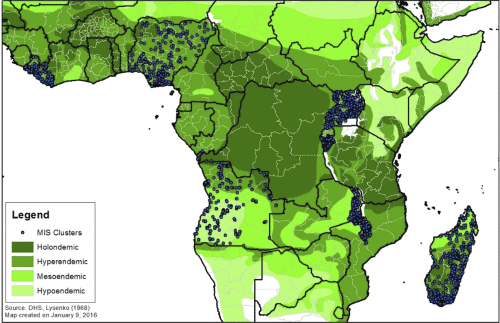Researchers developed a Malaria Ecology Index using climatological and ecological data and found strong associations between malaria ecology and malaria testing data. Using both insecticide-treated nets or indoor residual spraying reduces the added risk from adverse malaria ecology conditions by half. Readily available climate and ecology data can be used to estimate the variation in malaria disease burden, providing a feasible alternative to direct surveillance.





